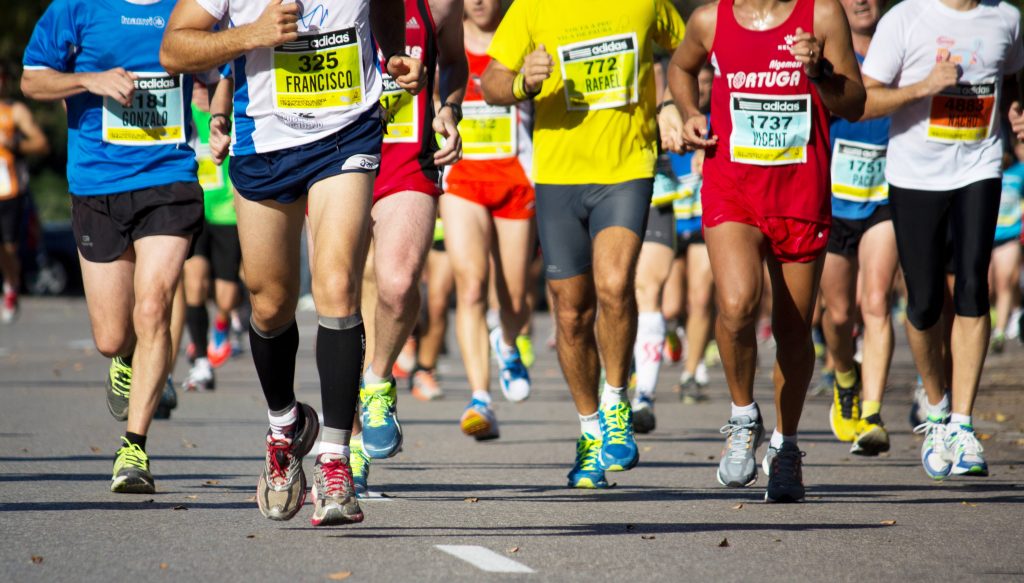
EAU CLAIRE, Wis. — Sleep might not be at the top of the list when you think about ways to boost your athletic performance. But it's just as important as your training program, nutrition and hydration.
Why does sleep play such a crucial role not only for performance but also for overall health?

"When you sleep, your brain processes all the information you've taken in during the day," says Amy Rantala, M.D., a sports medicine physician at Mayo Clinic Health System in Eau Claire. "Sleep filters out and deletes some information, while storing other information in memory. That includes assimilating new skills or techniques you may have learned that day so they become an intuitive part of your sports performance."
As you push your body to be stronger, go faster and be more agile, your tissues undergo continual wear and tear. Sleep provides your body time and energy to repair the wear and tear. Because your body has undergone these repair sessions, you're less likely to be injured. You're also less likely to become ill because sleep strengthens your immune system.
Studies of collegiate athletes show that when they don't get enough sleep, their reaction times and accuracy decrease. One study focusing on basketball free throws and three-pointers found that sleep-deprived athletes can see a drop of 50% in accuracy. With 10 or more hours of sleep, accuracy can increase by 10%. That's a 60% potential difference in performance.
Getting enough sleep also helps with your mental health and resiliency. The National Collegiate Athletic Association (NCAA) has added sleep screening to its best practices to monitor for conditions like insomnia and sleep apnea.
How much sleep is enough?
So, what is adequate sleep? It depends on your age and stage of life:
- Children
Kids 6–12 should get nine to 12 hours of sleep. - Teens
Young people ages 13–18 should get eight to 10 hours of sleep. - Adults
Those older than 18 need seven or more hours of sleep.
Teenage student athletes face numerous challenges to achieve that sweet spot of eight to 10 hours of sleep, including the demands of training, the times when games and practices are held, school, work, and social and family time.
"During the teen years, the body undergoes a change in the natural sleep-wake cycle, known as circadian rhythm," Dr. Rantala says. "Teens tend to stay up later at night and sleep later in the morning. That's why those early morning practices can play havoc with a teen's sleep reservoir and influence a student athlete's mental and physical health."
Tips for getting a good night's sleep
Just like a training routine sets you up for athletic success, a bedtime routine sets you up for sleep success.
An effective sleep routine includes:
- Avoiding vigorous exercise, training or competitions one to two hours before bedtime.
- Holding off on large meals, alcohol and caffeine too late in the evening.
- Creating a sleep-friendly environment. Your bedroom should be quiet, dark, relaxing and cool. Your mind and body should understand, "This is where I sleep."
- Going to bed and waking up at the same time each day.
- Setting aside at least 20 to 30 minutes before bedtime to wind down. That includes turning off all electronics and screens, such as phones, tablets and TVs. Instead, dim the lights, set out your clothes for the next day, write in your journal or do other quiet activities.
What if I still have trouble sleeping?
Daily life is full of stressors that can sabotage your best attempts to establish a healthy sleep routine. One of those stressors may be a wearable device tracking your sleep. If you're sleep deprived, seeing regular reminders of your lack of sleep can be stressful.
"Having a good support network of family, friends, coaches and teammates to talk with can help you cope with stress," Dr. Rantala says. "If sleep still is elusive, consider counseling, which may include cognitive behavioral therapy, mindfulness, meditation and journaling."
Just like learning and gaining proficiency in your sport takes practice, so does getting a good night's sleep. The sleep habits you develop and practice now will last a lifetime.
###
About Mayo Clinic Health System
Mayo Clinic Health System has a physical presence in 44 communities and consists of 53 clinics, 16 hospitals and other facilities that serve the healthcare needs of people in Iowa, Minnesota and Wisconsin. The community-based healthcare professionals, paired with the resources and expertise of Mayo Clinic, enable patients in the region to receive the highest-quality physical and virtual healthcare close to home.
Media contact:
- Dan Lea, Mayo Clinic Health System Communications, 715-838-6405, lea.dan@mayo.edu
Related Articles







